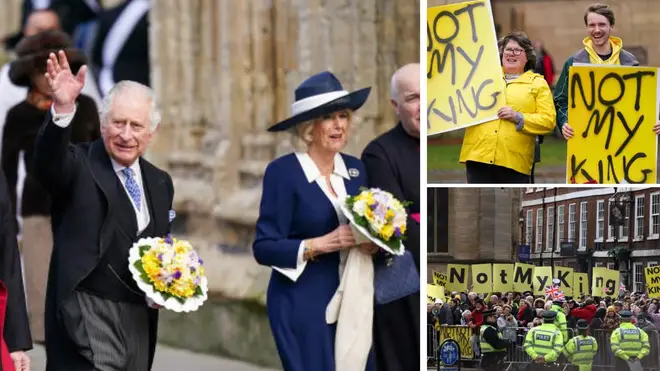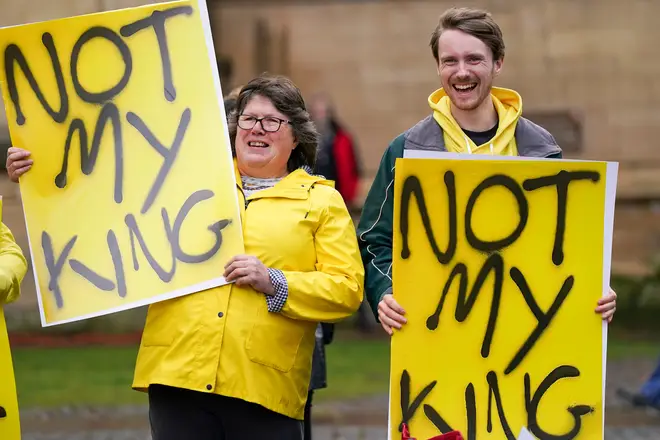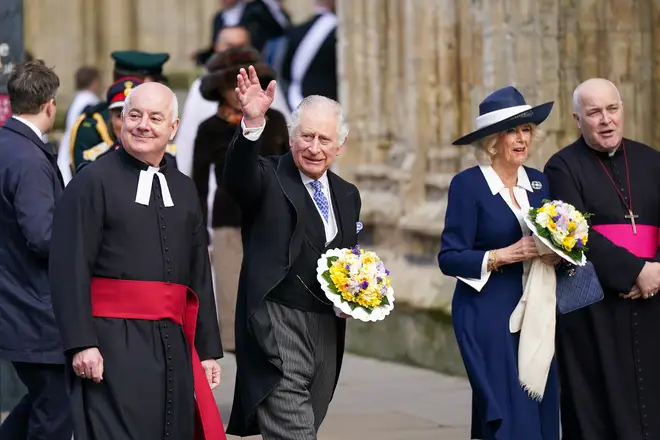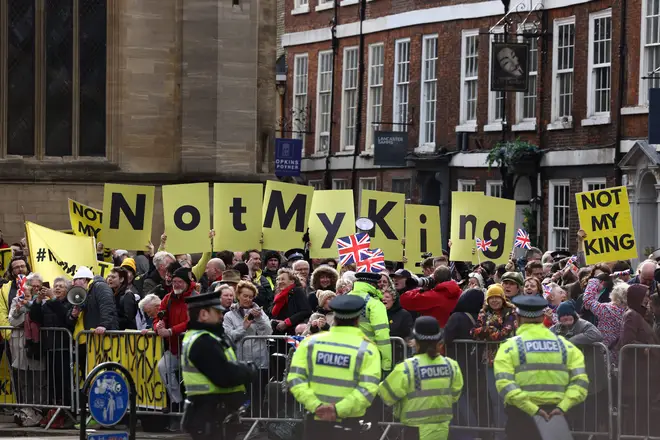
James O'Brien 10am - 1pm
6 April 2023, 15:25 | Updated: 6 April 2023, 15:41

King Charles and Queen Camilla faced further anti-monarchy protests at the first Royal Maundy service of the monarch's reign Thursday.
The royal couple were at York Minster the Royal Maundy service, where Charles fulfilled the ancient ritual of distributing Maundy money to elderly people in the community.
Charles, 74, was fulfilling the role for the first time as King - having stepped to carry it out as Prince last year, when the Queen wasn't able to do it.
During the service, the money is given to thank the recipients for outstanding Christian service and their positive impact on the lives of local people.
As they entered the cathedral Charles and Camilla were presented with the traditional nosegay, a small flower bouquet.
As part of the service, Charles presented each person with a red purse, containing two commemorative coins, and a white purse holding a set of specially-minted silver coins equivalent in value to his age.
Hundreds of well-wishers gathered to see the couple, but there was also a small number of noisy demonstrators voicing their opposition to the monarchy as the royals arrived.

Protesters from anti-monarchy group Republic held signs saying "Not My King", having promised to demonstrate at events leading up to Charles' coronation on May 6.
The organisation have already staged protests in Milton Keynes and Colchester and at the Commonwealth Day service at Westminster Abbey in March.

It comes after the Guardian published a document revealing that one of the monarch's predecessors, King William III, had shares in a company involved in the slave trade.
The document, which was found by Virginia-based historian Dr Brooke Newman in a royal archive, shows a transfer of £1,000 of shares to William of Orange from the firm's governor Edward Colston in 1689.

In response, a spokesperson for the Palace said that Charles takes the issue of his family's links to slavery "profoundly seriously" and supports the research.